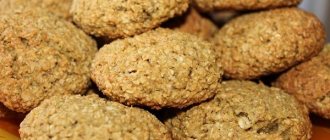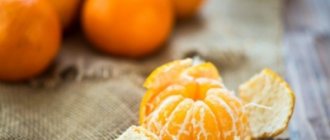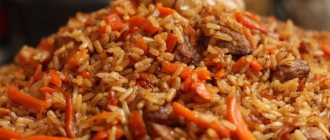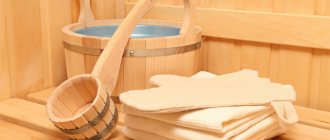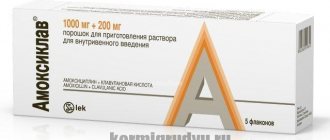The birth of a child is a long-awaited moment, but in some cases the first months of motherhood are overshadowed by unpleasant symptoms, one of which is heartburn during breastfeeding. During this period, most medications are not recommended for use, so it is important to know how to prevent the development of heartburn and how to deal with it if it has already occurred.
Breastfeeding woman
Causes of heartburn during breastfeeding
The main mechanism for the development of an unpleasant burning sensation behind the sternum is the reflux of gastric contents into the esophagus and irritation of its walls with caustic hydrochloric acid. There are several reasons for this condition during breastfeeding.
- In nursing women, this may be due to hormonal changes - during the period of bearing a child and breastfeeding, the level of prolactin and progesterone increases, which have a relaxing effect on the muscles of the internal organs. As a result, the lower esophageal sphincter, which is located at the junction of the esophagus and the stomach and normally remains closed, relaxes, allowing gastric juice to flow upward.
- After the birth of a child, the immune system is weakened, so many chronic diseases often worsen, including pathologies of the gastrointestinal tract. In some cases, it is during breastfeeding that symptoms of diseases that the woman did not even suspect were present for the first time. Chronic gastritis and gastric ulcers can manifest as heartburn, epigastric pain and nausea.
- An equally important factor contributing to the development of heartburn during hepatitis B is the nature of the diet. Mothers of newborn children sometimes do not have the opportunity to eat fully, snacking on the go, which has an extremely adverse effect on the digestion process. In such cases, it is rarely possible to eat healthy food; most often you come across fast food products, sweets or baked goods, which stimulate the release of hydrochloric acid.

Snacking on sweets on the run is a surefire way to get heartburn.
- Another reason why heartburn may occur in a nursing mother is excess weight. Pregnant women often take liberties by eating large amounts of high-calorie foods. The walls of the stomach stretch, the esophageal sphincter relaxes, creating favorable conditions for the reflux of gastric juice.
- Regular stress and emotional worries about the child’s health can cause disruptions in the functioning of the nervous system that regulates the gastrointestinal tract, resulting in relaxation of the sphincters. This is how heartburn appears.
Treatment: cough suppressants for hepatitis B

The baby receives all the antibodies necessary to resist the disease through mother's milk, so it is not recommended to stop feeding the baby naturally if these unpleasant symptoms occur. Before drug treatment, a nursing mother must be examined by a specialist to identify the cause of the disease. After making a diagnosis, the therapist will prescribe the patient a dosage and schedule for taking medications, and will also tell her about additional measures to treat her mother’s cough, which include:
- drinking plenty of water;
- air humidification;
- ventilation of the room where the patient is lying.
Medicines should be discussed separately and in more detail.
Cough syrups
Cough preparations during lactation should be made on the basis of medicinal herbs and plants. Syrups are no exception. Their use when coughing removes redness, softens sputum and kills pathogenic microorganisms. The syrup should not contain aggressive components. It is important that the product is so harmless that it would be allowed to be given to a child.
Cough tablets
According to research [1], many of the liquid cough and cold products contain alcohol. In addition, many of the combination products are a mixture of antihistamines and decongestants and may also contain aspirin, acetaminophen, ibuprofen, or caffeine. It is preferable for nursing mothers to take only those medications that are needed and avoid such combination medications. The American Academy of Pediatricians (AAP) considers alcohol, acetaminophen, ibuprofen, and caffeine compatible with breastfeeding. Aspirin has been associated with significant adverse effects in some breastfeeding infants, and the AAP recommends giving aspirin to nursing mothers with caution.
Time-tested Mucaltin tablets can be taken to cure a cough. And water-soluble Furacilin can be used as a mouthwash.
Cough sprays
How can a nursing mother treat a cough if it is accompanied by other pathological symptoms? In this case, sprays and aerosols are great help. Due to the fact that they are used topically, the likelihood of their components getting into milk tends to zero.
Inhalation
Ventilation of the lungs can be carried out using both traditional methods and modern devices - nebulizers. But solutions for such methods should only be prescribed by the woman’s attending physician.
Features of the treatment of dry cough
Treatment consists of eliminating the causes of dry cough. If the symptom appears due to an allergy, the woman is prescribed antihistamines, inhalations and plenty of fluid intake. If a foreign body enters the respiratory tract, it is enough for the patient to take drugs that enhance sputum secretion.
If a dry cough in a nursing mother is a symptom of a cold, then first she will need to take medications that soften the sputum. Then, when the cough turns from wet to dry again, the patient is prescribed drugs that suppress this reflex. Sometimes a nursing mother has to take antibiotics prescribed by a doctor for a cough, but this measure can be considered an extreme measure. Doctors prescribe such drugs only when the consequences of not treating them exceed the risk of infection in the infant.
How to get rid of heartburn during breastfeeding?
What to do to get rid of the annoying problem? There are general recommendations that, if followed, will help prevent new attacks of heartburn. Their main meaning is to adhere to the diet and rest regime:
- Meals 5-6 times a day, in small portions and at approximately the same time.
- Avoid snacking on the go.
- Maximum reduction of foods that increase the secretion of hydrochloric acid in the stomach: strong tea and coffee, carbonated drinks, hot sauces and seasonings, fried foods, mayonnaise, sour fruits and berries, fresh baked goods.
What foods are recommended for a nursing woman to consume to prevent heartburn? This list includes:
- Dairy and fermented milk products with a low fat content - yoghurts, cottage cheese, fresh milk, which can also be added to porridge.
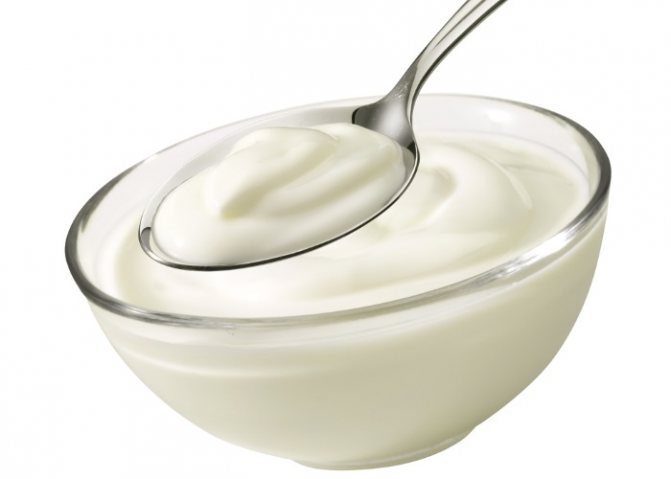
Low-fat yogurt
- Lean meat and fish - veal, chicken breast, lean beef, hake, pollock. You can steam or cook in the oven, or simmer on the stove with added liquid.
- Soups with vegetable and low-fat meat broth - warm liquid dishes have a beneficial effect on irritated mucous membranes.
- Butter and vegetable oil, no more than 1 teaspoon per day, have a beneficial effect on the functioning of the stomach and intestines.
- Whole grain bread or bread with added bran - white bread increases the acidity of the stomach, causing heartburn. Bakery products made from wholemeal flour do not produce this effect. If it is difficult to give up white bread, you can make sweet or salty crackers out of it.
- For sweets, you can eat crackers, biscuits, marshmallows and marmalade. Chocolate can provoke heartburn attacks.
- Sweet fruits and berries - bananas, apples, pears, melon, watermelon.
- Herbal tea - tea with the addition of chamomile, lemon balm, St. John's wort soothes the mucous membrane of the esophagus and stomach.
- For drinks, it is recommended to drink sweet compotes, non-concentrated natural juices, still mineral or pure water.
- A handful of seeds and nuts will help ease the discomfort of heartburn.
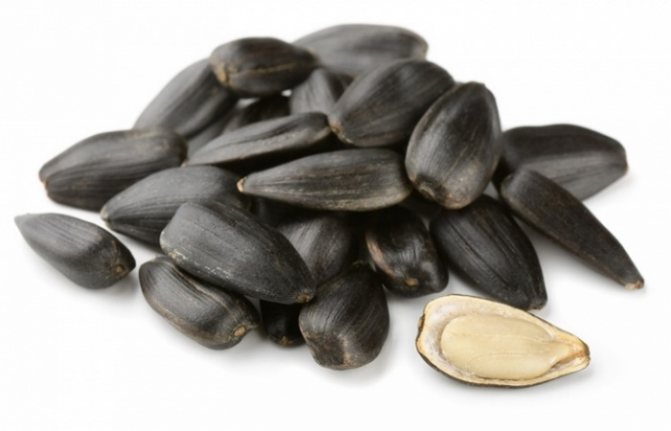
Sunflower seeds can help some people with heartburn
How to Drink Baking Soda for Benefit, Not Harm
Baking soda can be beneficial or harmful to the human body. The main thing here is to follow the limits and properly use baking soda internally. In addition to adding soda to foods, it can be consumed as a drink by diluting it prematurely with plain water. Baking soda has medicinal properties that help get rid of excess weight, improve the functioning of the digestive tract, and relieve problems with the oral cavity, but at the same time, soda also has a number of contraindications that are always worth remembering.
The scientific name for baking soda is sodium bicarbonate. It is a fine white powder that is highly soluble in water and is widely used in cooking, medicine, as well as in the food, chemical and pharmaceutical industries. Soda is used very often for various purposes, but its medicinal properties are not forgotten. For example, regular baking soda is a completely non-toxic substance and can be used by almost everyone. A soda solution has many useful properties, including an antiseptic effect, so it is often recommended to gargle with a soda solution, wipe the skin, etc.
The use of an aqueous solution of baking soda has a beneficial effect on restoring the acid-base balance in the human body, which is very important for many, especially those living in large cities with poor ecology. Baking soda and aqueous soda solution are widely used in folk medicine. It has been used to treat all sorts of ailments for a long time, namely: Baking soda is most beneficial if used wisely, but there are cases where the supplement is harmful to the body.
It is not recommended to use soda:. You should not overuse soda, otherwise the mucous membrane of the esophagus and stomach may be damaged, the acidity of the stomach will change and problems with the digestive system may arise.
When using soda for various health purposes, one should not forget about its effect on the mucous membranes. For example, soda causes irritation upon direct contact, especially on the mucous membrane of the eye. Drinking soda solution is useful, but the main thing is to know how to do it correctly so as not to harm the body. There are several ways to use soda:. How to properly drink baking soda for benefit, not harm February 22
Contents Baking soda will help get rid of many health problems. Baking soda has a number of contraindications. Baking soda solution must be consumed correctly. Source: 1RRE Want more? Get full access to news and analysis for free and without advertising.
Medicines allowed during breastfeeding
Sometimes, even if you follow a diet and diet, heartburn cannot be avoided. In this case, you have to resort to medications, most of which are prohibited during breastfeeding. To avoid undesirable consequences, it is better to entrust the choice of drug to a specialist.
During breastfeeding, it is allowed to take antacid drugs that are able to bind hydrochloric acid, turning it into insoluble salts, and also envelop and protect the gastric mucosa.
Approved antacid medications include:
- "Rennie" - tablets, the active ingredients are magnesium and calcium carbonate, which neutralize the acid to form water and salts.
- “Almagel” is a suspension that reduces the activity of gastric juice and protects the mucous membrane from damage.
- "Maalox" is a drug that envelops the mucous membrane and neutralizes hydrochloric acid, without causing hypersecretion.
- "Gaviscon" - the active ingredient of the drug, after reacting with hydrochloric acid, forms a gel that prevents new attacks of heartburn and protects the gastric mucosa.
Causes
The reasons for the development of cough can be different. Each of them requires special attention from the mother, expressed in complete and timely treatment. Cough most often occurs for the following reasons:
- Dry indoor air. To eliminate this problem, many doctors recommend installing humidifiers in the apartment, which will keep the air humidity at the proper level and protect the mucous membranes of the nose and mouth from drying out.
- Pharyngotracheitis. A non-bacterial inflammatory process in the throat and trachea. It is usually accompanied by a dry cough.
- Allergic reaction. It can occur on almost all components of the environment (dust, cosmetics, detergents, pollen, sun, etc.).
- Bronchitis is an inflammatory process in the bronchi. Often occurs in bad weather conditions.
- Poor ecology (air polluted by exhaust gases, construction dust, etc.).
Traditional methods of dealing with heartburn
The most popular folk method of getting rid of heartburn is water with soda. Add 1 teaspoon of baking soda to a glass of clean water and drink in one gulp. The remedy relieves the unpleasant symptom, but for a very short period - after some time, heartburn will return again, and perhaps with renewed vigor.
Potato juice is considered a more effective remedy in the fight against heartburn. To obtain it, you need to grate fresh potatoes on a fine grater and squeeze out the separated juice through cheesecloth. If a burning sensation occurs, you need to drink 2-3 tablespoons of the product, and to increase its effectiveness, you can add carrot and cabbage juice.
All remedies aimed at eliminating heartburn only help eliminate discomfort; they do not act on the cause of the symptom. To finally get rid of heartburn, you should undergo an examination and eliminate the identified pathologies.
Soda for weight loss
Soda solution has become incredibly popular among people who want to lose weight. To do this, dissolve half a teaspoon of soda in a glass of warm water and drink it in the morning on an empty stomach, half an hour before breakfast. To enhance the effect, add lemon juice to the drink. Baking soda reduces acidity in the stomach, thereby preventing the absorption of fats, and lemon juice speeds up digestion. The solution also helps get rid of swelling and salts, and suppresses appetite. The drink must be taken within two weeks. You can repeat the course after six months.
